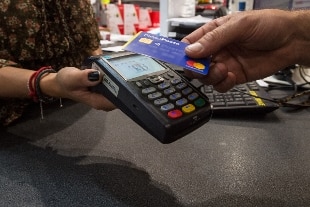Cashback, almost 10 million euros already accumulated for reimbursements
Dadone: cashback is going well, facilitating relationships between pa and users
Share
18 December 2020Recall to Italy from the European Central Bank on the cashback mechanism.
The monetary institution raised concerns at two levels:
on the merits
, because it believes that the mechanism set up by the government is "disproportionate" given the potential negative effect it could have on the cash payment system and because it undermines a neutral approach towards of the various means of payment available ".
And then
in the "method"
, because "national authorities are required to consult the ECB on draft legislative provisions that fall within its competence, including, in particular, those relating to means of payment".
The provision entered into force before the institution could express itself and "the ECB would appreciate that the Italian authorities would take into due consideration the above remarks, fulfilling in the future their obligation to consult the ECB, if necessary".
All transmitted in a letter signed by the former member of the Executive Committee of the ECB, Yves Mersch, dated last December 14, exactly the last day in which Mersch himself was in office (from the following day he was replaced by the Dutch Frank Elderson). Mersch signed the letter as he was responsible for the legal affairs of the ECB until then.
And his communication refers to a previous letter from the Minister of Economy, Roberto Gualtieri, to which he replies, dating back to November 24, to which a copy of the draft decree on the cashback program was attached.
The reply from the Mef
The reply from the Ministry of Economy was not long in coming. "The letter on cashback sent by the former member of the executive committee of the ECB, Dr. Yves Mersch, does not arouse any concern or second thoughts with respect to the Government's initiative. Mersch's arguments are in fact purely formal (regarding the opportunity to consult the ECB on the provision) and are by their nature non-binding ", said sources of the Mef.
"Mersch's positions on the matter are well known and express a traditional current of opinion, less and less relevant within the ECB and in the European context, where instead the commitment to modernize the financial system and to greater diffusion of digital payments. The formal observations expressed by Mersch - add the de Mef sources - do not appear to be well founded, since, as is well known, Italian cashback does not limit the use of cash in the least or penalize those who use it, but only tends to encourage electronic payment instruments ".
"The objectives of the measure, which has met with great favor with consumers from the outset, are to encourage the digitization of the country, increase the level of safety in public establishments and encourage compliance with tax regulations", conclude from the Mef.
However, Mersch expresses himself throughout the communication on behalf of the ECB, recalling that the institution also has "the fundamental task of promoting the regular functioning of payment systems".
The Luxembourg central banker cites a 2010 European Commission recommendation that "the acceptance of cash payments should be the norm" and the principle that "any direct or indirect limitation or disincentive to cash payments must comply with the requirements relating to legal tender of euro banknotes ".
But above all "the ECB recognizes that incentivizing transactions through electronic payment instruments for the purchase of goods and services in order to combat tax evasion can, in general, constitute a 'public interest' that justifies the disincentive and the consequent limitation of the use of cash ". But "it would be necessary to demonstrate that the limitations affecting the legal tender of euro banknotes are effective to achieve the public aims that are legitimately intended to be achieved through such limitations. There should therefore be clear evidence that the cashback mechanism allows, in fact, to achieve the public purpose of the fight against tax evasion ".
For all this "the ECB believes that the introduction of a cashback program for electronic payment instruments is disproportionate in light of the potential negative effect that this mechanism could have on the cash payment system - concludes Mersch - and as it compromises the objective of a neutral approach towards the various means of payment available ".
Prime Minister Conte: first step towards digitalization
"I hear a lot of criticism on cashback these days, but it is not a friendly measure of the gatherings, but a friend of the citizens and helps citizens even in this difficult moment. It is the first step for the digitization of the country ". The Prime Minister, Giuseppe Conte, stated this on cashback

